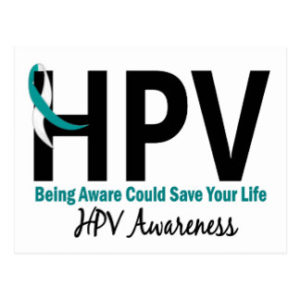
March 4, 2018 is the first annual HPV Awareness Day. According to the International Papillomavirus Society (IPVS), “this day will serve to promote awareness of and education around HPV infection, how it spreads, and how HPV infection and the diseases that it causes can be prevented.” Feel like you need to learn more about HPV? Keep reading!
What is human papillomavirus?
HPV is the most common sexually transmitted infection. It currently affects about 79 million Americans. There are over 150 different types of HPV, some of which can cause genital warts and cancer. HPV is spread through skin-to-skin contact, particularly through sexual activity, including vaginal, anal, or oral sex. In many cases, a person has no outward signs or symptoms. They may not even know they have the virus or that they are passing the virus to another person.
How do you know if you have HPV?
There are usually no signs or symptoms of HPV. There are also no standard tests to check for HPV. HPV tests that can be used to screen for cervical cancer are recommended for women 30 years and older. A woman may find out she has HPV when she has an abnormal test result after a Pap test.
How can you prevent the spread of HPV?
Because many people don’t even know they have HPV and because there is no treatment for the virus itself, it is important to take measures to stop the spread of HPV.
- Practice safer sex. It is important to use a barrier method of protection to prevent the spread of HPV. Use of latex condoms can lower your chance of getting or spreading HPV. Keep in mind though that areas not protected by a condom can still cause spread of the virus.
- HPV Vaccination. The vaccination is typically given to both boys and girls ages 11-12. It can also be given to all men through the age of 21 and all women, gay or bisexual men, and those with lowered immune systems until the age of 26. It is given in a series of 2 or 3 shots. It can protect against diseases caused by HPV including some cancers and genital warts. It is important to speak to your or your child’s provider regarding the need and timing for this vaccine.
What health issues does HPV cause?
In some cases, HPV may go away on its own. In other cases, it can lead to genital warts and cancer.
- Genital warts are bumps found in the genital area. They can vary in size, can be elevated or flat, or in some cases be shaped like a cauliflower. They can be treated with a prescription medication.
- HPV can lead to pre-cancerous lesions, which if found in time, can be removed before becoming cancer. Cancers that can be caused by HPV include cancer of the vulva, vagina, penis, anus, throat, tongue, and tonsils. Cancer itself may develop years after the person contracts certain strains of HPV.
HPV Awareness Day will help spread education about this virus, the vaccine and ultimately cancer prevention. You can do your to prevent the spread of HPV by receiving the vaccine and by practicing safe sex habits.